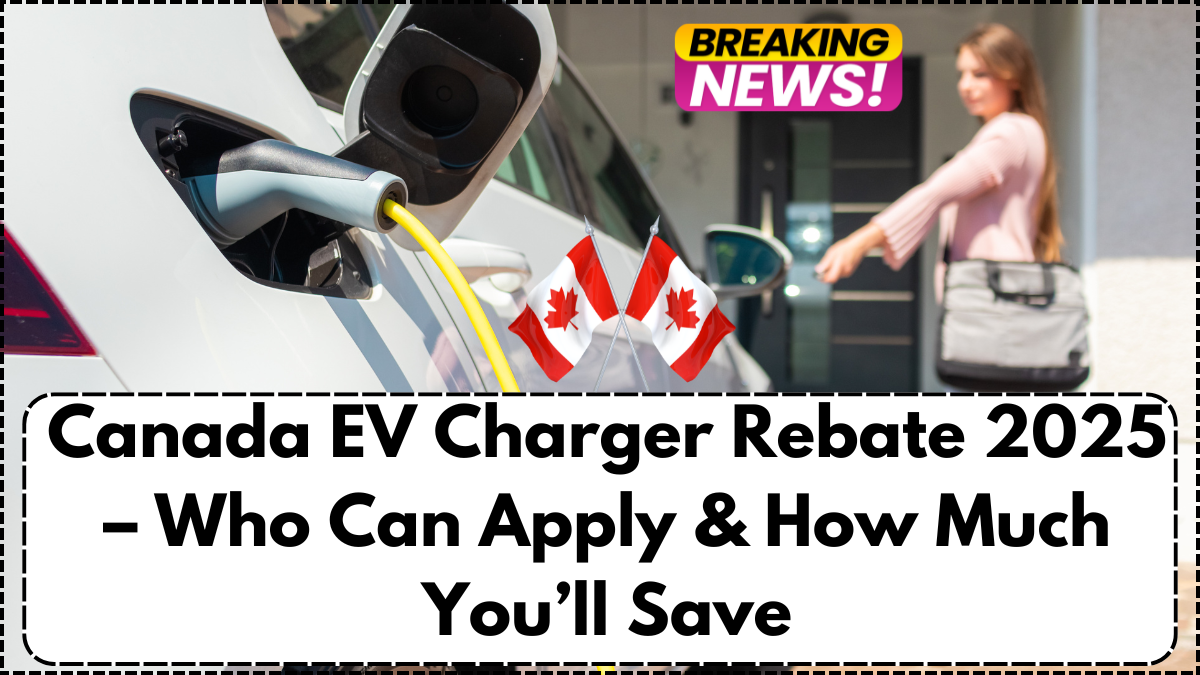The Canadian government continues to support electric vehicle (EV) adoption with a generous incentive aimed at homeowners and businesses looking to install charging infrastructure. The Canada EV Charger Rebate 2025 is part of a broader green policy agenda that promotes sustainable transportation and reduced emissions. This year’s program builds upon past initiatives, offering even more accessible rebates and expanded eligibility criteria.

Table of Contents
Who Qualifies for the Canada EV Charger Rebate 2025?
The rebate program is open to a broad range of applicants:
- Homeowners: Individuals who own residential properties and plan to install Level 2 chargers.
- Multi-unit residential building owners: Property managers or landlords can apply for communal charger installations.
- Businesses and non-profits: Commercial locations offering public or fleet-use chargers are eligible.
- Indigenous communities: Dedicated funding supports EV infrastructure in First Nations, Inuit, and Métis communities.
All applicants must use a licensed electrician for installation, and chargers must meet minimum safety and performance standards outlined by Natural Resources Canada (NRCan).
How Much Can You Save?
The savings offered in 2025 have been adjusted to reflect increased installation and equipment costs. Here’s a breakdown:
Applicant Type |
Rebate Amount |
Notes |
|---|---|---|
Individual Homeowners |
Up to $750 per charger |
Covers both equipment and home installation support |
Multi-Unit Residential Buildings |
Up to $5,000 per charger (max $25,000) |
Shared-use chargers only |
Businesses/Public Chargers |
Up to 50% of total project cost (max $100,000) |
Applies to DC fast chargers as well |
Indigenous Communities |
75% of total cost (max $125,000) |
Includes installation and planning fees |
Applicants are encouraged to combine federal rebates with provincial programs like BC’s CleanBC or Quebec’s Roulez vert to maximize savings.
How the Application Process Works
Applying for the Canada EV Charger Rebate 2025 is designed to be straightforward. All applicants must:
- Purchase eligible equipment from a certified supplier.
- Obtain a quote and complete installation using a qualified electrician.
- Submit receipts and installation documents through the NRCan portal.
- Receive reimbursement via direct deposit within 6–8 weeks.
Keep in mind, pre-approval is recommended for commercial or large-scale projects, especially if additional funding streams are involved.
Why This Rebate Matters in 2025
Canada’s commitment to a low-carbon future remains central in 2025. The EV Charger Rebate plays a key role in making electric vehicle ownership more practical. Coupled with aggressive EV sales targets and fuel economy regulations, this initiative makes sustainable transport not just an option, but a national priority.
The home installation support component ensures homeowners can adopt EVs without facing steep upfront costs. It also strengthens the country’s green policy framework, supporting infrastructure development that aligns with Canada’s net-zero emission goals for 2050.
Final Thoughts
The Canada EV Charger Rebate 2025 is more than just financial relief—it’s a step toward reshaping how Canadians commute, invest, and plan for the future. Whether you’re a homeowner, a developer, or a business owner, taking advantage of this program is not just financially smart—it’s environmentally responsible.
FAQs
What type of charger is eligible for the rebate?
Only Level 2 chargers and higher are eligible. The unit must be approved by NRCan and installed by a certified professional.
Can I apply for the rebate after installation?
Yes, but you must submit all necessary documentation, including a paid invoice and proof of installation, within 90 days of completion.
Are leased properties eligible?
Yes. Both landlords and tenants can apply, provided there’s consent from the property owner and the installation meets code requirements.
Can I combine this rebate with other provincial incentives?
Absolutely. Most provinces allow you to stack this federal rebate with local programs to further reduce your costs.
Is there a deadline to apply?
While no fixed end date has been announced, funding is limited and applications are accepted on a rolling basis. Early application is advised.
Click here to learn more




